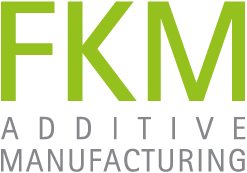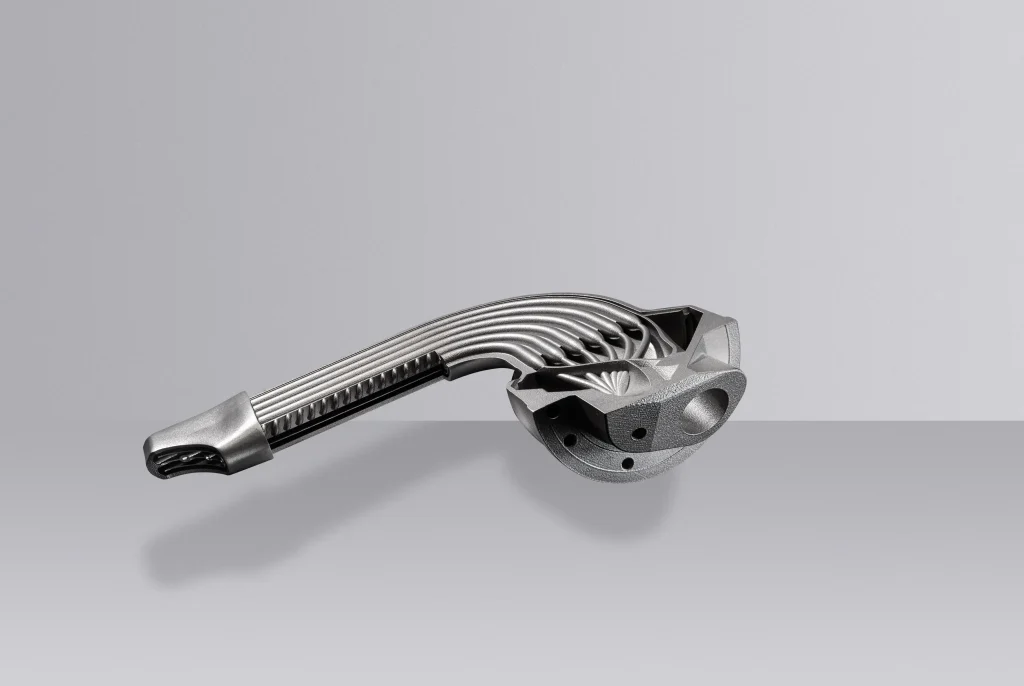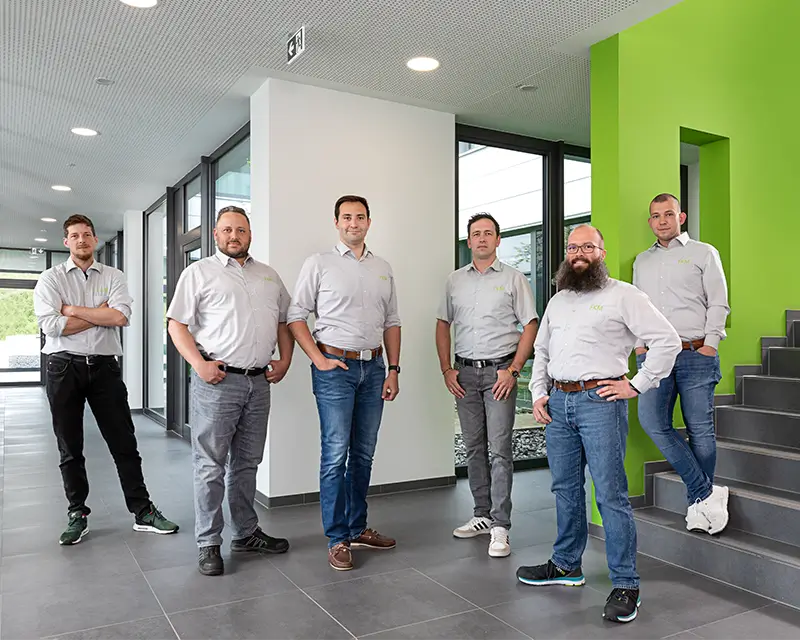3D printing Inconel
IN 718
Startseite » Materials » Metals » Inconel
3D printing Inconel: for high-temperature applications
Inconel is the umbrella term for various nickel-based superalloys manufactured by Special Metals Corporation. In addition to nickel, these superalloys also contain chromium, magnesium, iron and titanium in varying proportions. 3D printing Inconel is a heat-resistant or high-temperature alloy.
Which 3D printing Inconel material is the best choice?
Due to its very good production performance and proven material properties, we work with the most widely used Inconel material for 3D printing, IN 718. The nickel-chromium alloy IN718 consists of 50 to 55 % nickel, 17 to 21 % chromium and twelve other metals with smaller proportions. 3D printing Inconel is ideal for additive manufacturing of products for high-temperature applications and other extreme requirements such as engine parts, turbines or heat exchange and piping systems.
The impressive material properties of 3D printing Inconel
In additive manufacturing, 3D printing Inconel 718 powder is used for components that are exposed to extreme environmental conditions and high mechanical loads. 3D printing Inconel 718 is also always a good choice when the workpieces need to be insensitive to corrosion and oxidation.
- Advantages of Inconel 3D printing 718
- Very high temperature resistance
- Very good corrosion and oxidation resistance
- Suitable for cryogenic environments
- Homogeneous and dense surface structure
- High ductility and tensile strength
- Good creep and fracture resistance
- More cost-effective in 3D printing than in machining

Fields of application of 3D printing Inconel 718
The powdered Inconel material IN 718 is ideal for cost-effective 3D printing of components with intricate designs, very thin walls or internal structures. These workpieces are used in areas such as the aerospace and aviation industries and in motorsports. 3D printing Inconel 718 is ideal as a replacement for aluminium and steel when creep problems are expected under extreme environmental conditions.
Aerospace: Propulsion Technology
- The aerodynamically optimized measuring probe with its filigree internal cooling channels and spiral gas extraction holes makes it possible to measure the kerosene exhaust gas of ultrafine particles in the hot exhaust gas jet of an aircraft turbine. The exhaust gas measurements at maximum take-off thrust are designed for pressures of up to 45 bar and up to 2,150 °C. The material Inconel 718 is particularly resistant to high temperatures and allows extremely thin wall thicknesses. The production was carried out with a support structure-free design.
- Smallest Series |
- Inconel 718 |
- support-free design – later: machined by the customer and coated with ceramics |
- Checking the box dimensions, checking the clearance of all ducts with compressed air |

IN718
The nickel-chromium alloy for all extremes
The Inconel 718 superalloy was originally developed specifically for the production of jet engines. To achieve this, it not only had to be strong, heat-resistant and corrosion-resistant but also needed to be lightweight and cost-effective. Nowadays, Inconel 718 is the world’s most widely used superalloy because it can be used permanently without any problems, even under extreme environmental conditions. 3D printing Inconel 718 material is extremely heat-resistant and strong up to a temperature of 700°C because it builds up a thick protective layer of chromium oxide, which in turn prevents corrosion and oxidation. In addition, 3D printing Inconel 718 is characterised by its high ductility and tensile strength, as well as its good elongation properties at break. It can also withstand very low cryogenic temperatures.
Maximum installation space: 250 mm x 250 mm x 300 mm
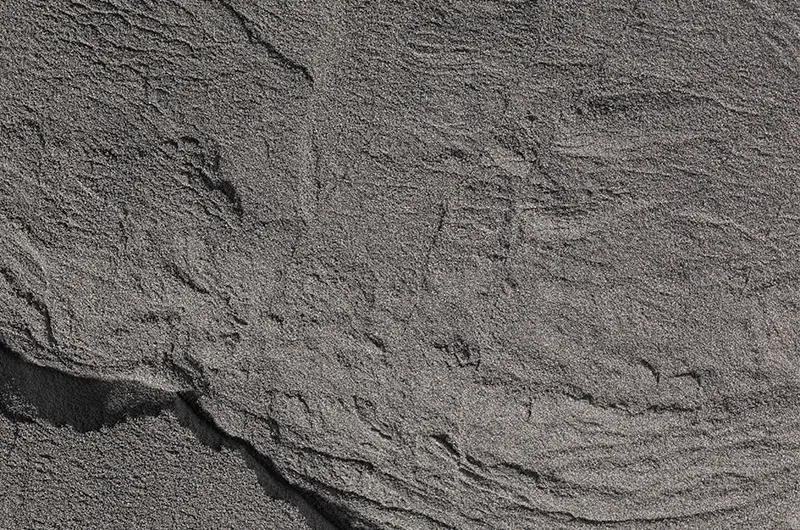
Properties of 3D printing Inconel 718
Mechanical
-
Yield point Rpp0,2 1000 - 1100 N/mm²
-
Tensile strength Rm 1250 - 1350 N/mm²
-
Elongation at break A 8 – 12 %
-
Modulus of elasticity ca. 200 N/mm²
Various heat treatments can be used to optimise yield strength and elastic limit.
Thermal
-
Thermal conductivity ʎ ca. 12 W/mK
-
Coefficient of thermal expansion ca. 13 • 10-6K-1
